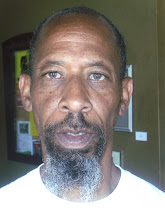The homeless, at one time in contemporary history, were labeled as “invisible” people. It was easier to ignore there presence. Their political power is all but absent save a few organizations that have been established to help protect their minimal rights. Always under scrutiny, we avoid eye contact with them even as we reach into our purses or pockets to give them change. Some look upon them with either sympathy or empathy, too often we see them with shame. Then others just look at them in disgust. Still others know that they could very well be in the very same predicament or are only a paycheck away from poverty. The advocacy community often argues that all of us are "only one paycheck" away from homelessness and that "these days" increasing numbers of formerly middle-class people are found among the ranks. In fact, exceedingly few homeless people come from middle-class backgrounds. As the data suggest, people typically stay witin the socio-economic class from which they were born. Most homeless people were born into poverty and have been poor all their lives; they are not only the poorest of the poor but also the most persistently poor. Like poverty in general and extreme chronic poverty in particular, homelessness impacts with particular severity on the young, racial minorities, and socially unaffiliated. The average age of homeless persons in any number of credible studies is reported to be in the low to middle thirties; racial and ethnic minorities are heavily overrepresented. Most of the homeless were chronically unemployed for several years before their first spell of homelessness, this despite the fact that half of them have graduated from high school.
One of the most visible and certainly one of the most troubling consequences of the 1980s era increase in the chronic poverty has been the seemingly sudden rise of the urban homeless population. Homelessness is not unique to the present day and age; to the contrary, we have witnessed periodic episodes of widespread homelessness throughout our history, beginning in colonial times (Wright 1989; Monkkonen 1984; Hopper and Hamburg 1984).
